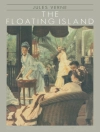In ‘The Prussian Officer, ‘ D. H. Lawrence explores the intricacies of human relationships through the prism of military authority and personal desire. Set against the backdrop of a rigid, hierarchical society, the novella employs a concise yet evocative prose style that reflects Lawrence’s deep psychological insights and emotional depth. The narrative encapsulates the tensions between power and vulnerability, as it delves into themes of love, repression, and the often destructive force of masculinity. The work is situated within the modernist literary context, showcasing Lawrence’s departure from traditional narrative structures while emphasizing raw human experience. D. H. Lawrence, a pivotal figure in the early 20th-century literary movement, was deeply influenced by his own experiences with industrialization and the complexities of interpersonal relationships. Born in 1885 in Nottinghamshire, England, Lawrence’s background as the son of a coal miner informed his critique of societal norms. His passion for understanding the human psyche and exploring taboo subjects is evident in ‘The Prussian Officer, ‘ which reflects his own struggles with identity, class, and sexuality. Lawrence’s incisive examination of the human condition makes ‘The Prussian Officer’ a compelling read for those interested in psychological realism and the transformative power of literature. This novella not only enriches one’s understanding of early 20th-century themes but also invites readers to reflect upon the nature of love and authority in their own lives.
Over de auteur
David Herbert Lawrence, born on September 11, 1885, in Eastwood, Nottinghamshire, England, is celebrated as one of the most influential literary figures of the 20th century. D.H. Lawrence was known for his profound and controversial exploration of human consciousness, sexuality, and instinct. His narrative style often delved into the complexities of the human psyche, a theme that proliferated through his prolific body of work which encompassed novels, short stories, poems, plays, essays, travel books, paintings, translations, and literary criticism.
His collection ‘The Prussian Officer and Other Stories’, published in 1914, exemplifies his intense psychological exploration, war-time disillusionment, and critical examination of social and class dynamics. A visionary of his time, Lawrence’s ability to channel a vivid portrayal of human emotions and the struggles of intimate relationships set him apart in literary modernism. Although his works, such as ‘Sons and Lovers’, ‘The Rainbow’, and ‘Women in Love’, met with controversy and censorship, Lawrence’s depth of character analysis and his exploration of the human condition remain unparalleled. His writing continues to invite scholarly debate and has firmly ingrained him in the English literary canon. Lawrence died in France on March 2, 1930, leaving behind a legacy that continues to inspire and provoke.












